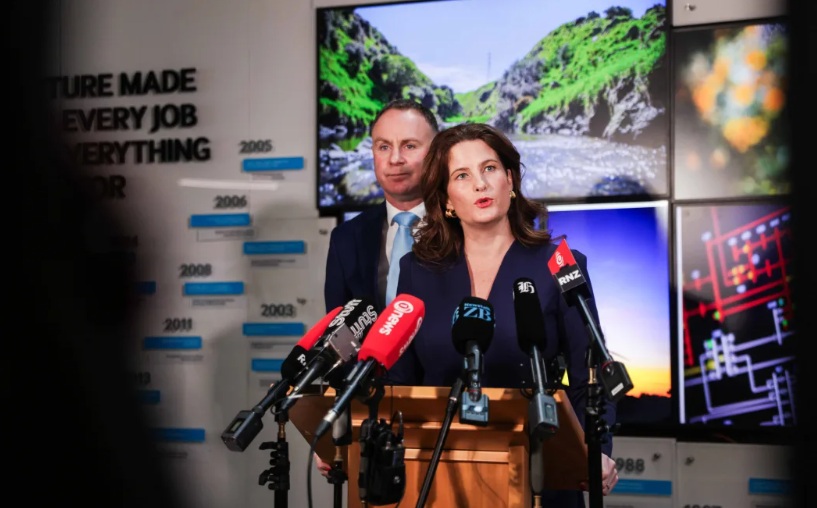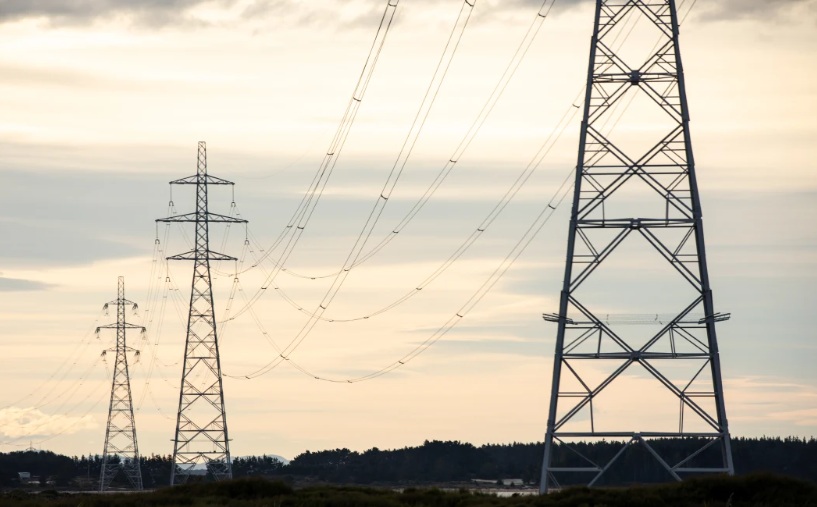
The government has indicated it is willing to back major electricity projects with fresh investment, though the questions of what, when, or how much remain unanswered.
The commitment comes as part of the coalition's hotly anticipated response to a sweeping review of the electricity sector which was prompted after shortages pushed up wholesale power prices.
The package of measures - which stops well short of any major shake-up - also includes moves toward a new gas import facility and stronger powers for the Electricity Authority.
In a statement released on Wednesday morning, Finance Minister Nicola Willis said she had written to the state's three part-owned power companies - Genesis, Mercury and Meridian - to make clear the Crown would take part in any capital raising needed for big new projects.
She said the move was designed to end any doubts that the government would not stump up extra cash, which had been holding back investment in new generation.
"We wish to correct that perception," Willis said.
"The government is committed to maintaining its legally mandated 51 percent stake in the MOM [mixed-ownership model] companies, and we accept we would need to participate in any equity raise required for major new investments.
"We are more than willing to do this, if the proposals stack-up."
Energy Minister Simon Watts said New Zealand needed more reliable back-up supply for dry years when hydro and wind could not meet demand.
He said a new procurement process for a liquefied natural gas (LNG) import terminal would begin next week. The plan is to get it delivered in time for winter 2027.
Officials have also been tasked with consulting the industry for proposals to boost generation.
What the report found - and what the government's not doing
The review - by consultancy Frontier Economics - made a series of recommendations, not all of which were agreed to by the government.
Frontier's report found the government's ownership in the gentailers could "distort investment outcomes" by creating a perception they could not raise capital or invest in large scale projects.

Frontier also proposed the creation of a new Crown Entity to take responsibility for thermal fuel and firming capacity.
The government also did not accept Frontier's recommendations that electricity be removed from the Emissions Trading Scheme, and that the Electricity Authority and Gas Industry Company be amalgamated.
Instead, the Electricity Authority will be given more teeth, with increased penalties for code breaches, more information gathering powers, and more monitoring powers. Legislation to strengthen the EA is expected to be introduced in the second quarter of 2026.
A recommendation for the 29 different electricity distribution businesses (EDBs) to be amalgamated into five large ones will also not be pursued.
The government says, rather than amalgamation, there will be more standardisation and collaboration. They will be set milestones by MBIE and the Electricity Authority, with the possibility they will be mandated if the networks fail to meet them.
'We need to keep the lights on'
Watts said a dry year like 2024 must not happen again, and that while New Zealand was on the cusp of a renewable electricity boom, reliable back-up options were still needed.

"This uncertainty is what is keeping power prices up and placing unacceptable pressure on Kiwi households, businesses and industries alike."
The regulatory framework for dry years would be addressed, with a new framework being developed in consultation with industry to ensure a lack of back-up supply did not happen again.
The government has already taken some steps while waiting for the review, such as passing legislation to re-open offshore oil and gas exploration, and promising a $200m co-investment in gas fields in the Budget.
The Commerce Commission is also prepared to approve the big-four power companies to build up a coal stockpile to use at Huntly station, to reduce the risks of future electricity shortages during a dry winter.
Last month, the Electricity Authority told the country's gentailers to offer the same deals to independent competitors as their own retail arms.













